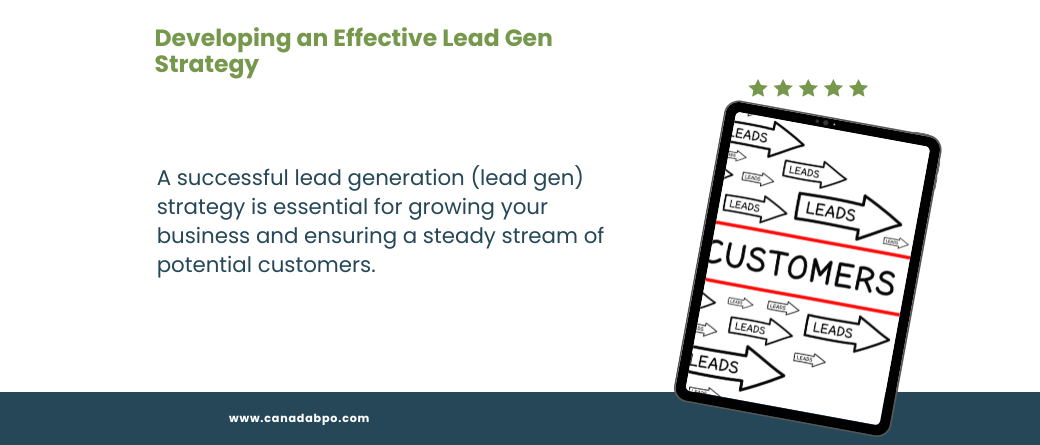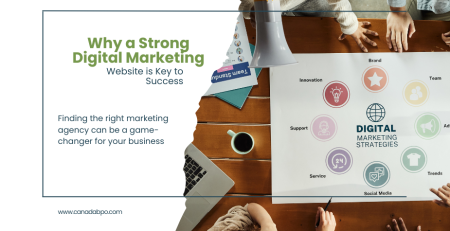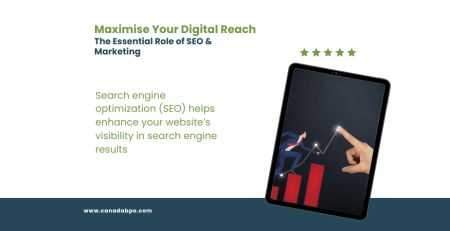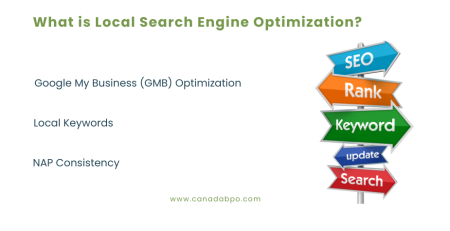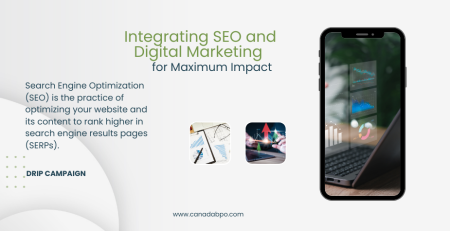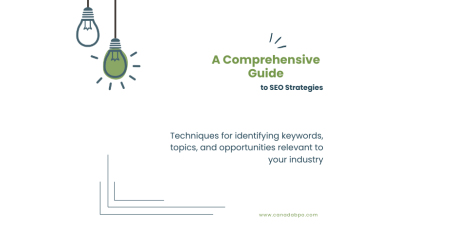A successful lead generation (lead gen) strategy is essential for growing your business and ensuring a steady stream of potential customers. This post will break down what a lead gen strategy is, why it’s important, and the steps you need to create an effective one that consistently delivers quality leads to your sales team.
What is a Lead Gen Strategy?
This section defines what a lead gen strategy is and how it fits into the overall business growth plan:
- Definition:
A lead gen strategy is a systematic approach to attracting, engaging, and converting potential customers (leads) into prospects who are likely to purchase your products or services. It involves using various marketing tactics to drive traffic, capture lead information, and nurture leads through the buyer’s journey. - Why is a Lead Gen Strategy Important?
- Steady Pipeline: A well-executed lead gen strategy ensures a consistent flow of leads, which is crucial for maintaining business growth.
- Targeted Approach: It allows businesses to focus on generating leads that are most likely to convert, improving the efficiency of sales efforts.
- Scalability: An effective lead gen strategy can be scaled up as your business grows, ensuring sustainable success.
Key Components of a Successful Lead Gen Strategy
This section highlights the essential elements needed to create a strong lead gen strategy:
- Identifying Your Target Audience:
- Importance: Knowing your ideal customers allows you to tailor your lead gen efforts to attract the right people.
- Best Practices: Create detailed buyer personas that describe your target audience’s demographics, needs, pain points, and behaviors.
- Developing Lead Magnets:
- Importance: Lead magnets are valuable resources, such as eBooks, webinars, or free trials, that entice potential customers to share their contact information.
- Best Practices: Offer lead magnets that provide immediate value and address specific problems faced by your target audience.
- Creating High-Converting Landing Pages:
- Importance: Landing pages are where visitors are converted into leads. These pages should be optimized to encourage visitors to take action.
- Best Practices: Use clear headlines, strong CTAs (Calls to Action), and user-friendly forms to increase conversions.
- Content Marketing:
- Importance: Content plays a crucial role in attracting and nurturing leads. Blog posts, videos, and infographics educate and engage your audience.
- Best Practices: Create content that addresses the needs and interests of your target audience, and use it to drive traffic to your lead magnets.
- Email Marketing and Nurturing Campaigns:
- Importance: Email marketing is essential for nurturing leads by delivering personalized content and offers over time.
- Best Practices: Set up automated email sequences that guide leads through the sales funnel, and segment your email list for more targeted messaging.
Popular Lead Gen Tactics to Implement in Your Strategy
This section covers specific tactics that are effective in generating leads:
- Search Engine Optimization (SEO):
- Definition: Optimizing your website and content for search engines to attract organic traffic.
- Use Case: Driving long-term, sustainable traffic to your landing pages and capturing leads through lead magnets.
- PPC Advertising:
- Definition: Paid ads on platforms like Google and Facebook to drive traffic to your lead generation pages.
- Use Case: Reaching a specific audience with targeted messaging to capture qualified leads quickly.
- Social Media Lead Gen:
- Definition: Using social media platforms to promote lead magnets, engage with potential leads, and drive traffic to your website.
- Use Case: Running targeted ads and sharing valuable content that resonates with your audience to capture leads directly from social media.
- Webinars and Online Events:
- Definition: Hosting educational webinars or virtual events that provide value to attendees in exchange for their contact information.
- Use Case: Building authority in your niche while generating high-quality leads interested in your expertise.
- Referral Programs:
- Definition: Encouraging existing customers to refer new leads to your business by offering rewards or incentives.
- Use Case: Leveraging your current customer base to generate warm leads that are more likely to convert.
Measuring and Optimizing Your Lead Gen Strategy
Tracking and optimizing your lead gen strategy is crucial for long-term success. This section discusses key metrics and tools:
- Key Metrics to Track:
- Conversion Rate: The percentage of visitors who convert into leads.
- Cost Per Lead (CPL): The average cost of acquiring a lead through your various tactics.
- Lead Quality: Evaluating the relevance and sales readiness of your leads.
- Tools for Measurement:
- Google Analytics: Track website traffic and lead conversions to understand the effectiveness of your lead gen efforts.
- CRM Systems: Manage and analyze leads as they move through the sales funnel, providing insight into lead quality and conversion rates.
- Marketing Automation Platforms: Automate and monitor email marketing campaigns, lead scoring, and nurturing activities.
- Optimization Techniques:
- A/B Testing: Continuously test different versions of your landing pages, ads, and email campaigns to find the most effective elements.
- Performance Analysis: Regularly review your lead gen metrics to identify areas for improvement and adjust your strategy as needed.
Best Practices for Developing a Lead Gen Strategy
To create a successful lead gen strategy, consider the following best practices:
- Prioritize Lead Quality Over Quantity: Focus on generating high-quality leads that are more likely to convert rather than simply increasing lead volume.
- Align Marketing and Sales Efforts: Ensure that your marketing and sales teams are aligned, with clear definitions of what constitutes a qualified lead and a seamless handoff process.
- Personalize Your Approach: Use data and insights to personalize your lead gen efforts, tailoring content, offers, and messaging to the specific needs and interests of your target audience.
- Be Patient and Persistent: Lead generation takes time, and nurturing leads is an ongoing process. Stay consistent with your efforts and continuously refine your strategy based on results.
Developing a strong lead gen strategy is key to driving sustainable business growth. By understanding your target audience, creating valuable lead magnets, and leveraging effective marketing tactics, you can attract and convert high-quality leads that fuel your sales pipeline. Regularly measuring and optimizing your strategy ensures that your lead generation efforts remain successful over time.
Ready to build a lead gen strategy that drives real results? Contact us today to learn how we can help you create a customized strategy that grows your business and converts leads into loyal customers.
